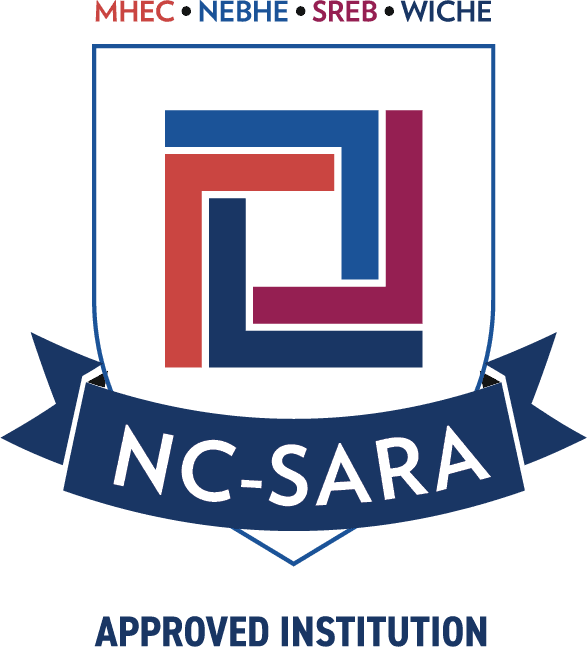Licensure and Certification Disclosures
Cairn University offers several programs that can lead to licensure or certification.
Professional licensure and certification requirements can vary by state and territory. Additional licensure requirements may include professional examinations, background checks, years of work experience, fingerprinting requirements, etc. Students who are considering a program that may allow them to pursue professional licensure in the state or territory where they are currently located or where they plan to locate in the future should review the state’s or territory’s information on the program link (or program webpage) below and contact the appropriate licensing agency to seek information and additional guidance.
State licensure requirements are also subject to changes. Students should always check with their state licensure board to confirm licensure requirements.
Professional Licensure and Certification Programs
The Cairn University programs listed below are designed to prepare students for a career in a licensed profession upon completion of the program.
- Counseling
- Education
Optional Professional Certification
The programs listed below do not require licensure or certification for graduates to be employed in their field.
- Accounting

Cairn University has been approved by the state of Pennsylvania to participate in the National Council for State Authorization Reciprocity Agreements. NC-SARA is a voluntary, regional approach to state oversight of postsecondary distance education.
FAQ’s about counseling licensing
Through the National Board of Certified Counselors (NBCC) website:
Cairn University strongly recommends that students directly contact the licensing board in the state where they plan to be licensed (via email or phone) to determine license eligibility before enrolling.
Presently, all U.S. States require counselors to be licensed to practice as a professional counselor. Each state sets their own requirements of what is needed to become licensed, so it is important to know the laws and regulations of the state in which you plan to seek licensure.
Some states require candidates for licensure to graduate from a Counsel for Accreditation of Counseling and Related Educational Programs (CACREP) accredited program to become licensed. The Veteran’s Administration also requires graduation from a CACREP program to be hired for two of their Counselor positions.
Yes, as long as you meet the state requirements, you can get licensed in multiple jurisdictions. The Counseling Compact, set to commence in 2025, is intended to facilitate practice privileges in multiple states through an efficient and expedited process:
Since Cairn’s MSC program is designed with U.S. standards and regulation in mind, it will be important to learn what the country, states, or territory’s laws are regarding practice as a counselor and any applicable licensing laws or regulations.
Currently, no state licensing boards require a candidate to earn their degree on-site at a physical location; however, some states, such as Missouri, may require the online degree to be taught synchronously. Presently, Cairn’s online MSC program is taught asynchronously.
Counseling License by State
States:
– Alabama*
– Alaska
– Arkansas
– Arizona*
– California*
– Colorado*
– Connecticut
– Delaware
– Florida*
– Georgia*
– Hawaii
– Idaho
– Indiana
– Iowa*
– Illinois
– Kansas
– Maine
– Maryland
– Massachusetts
– Michigan*
– Mississippi
– Missouri*
– Montana
– Nebraska*
– Ohio
– Oregon
– Nevada
– New Jersey
– New Mexico
– North Dakota
– Oklahoma
– Pennsylvania
– Rhode Island
– South Carolina
– Texas
– Utah
– Vermont
– Virginia
– Washington
– Wyoming
Territories:
– Guam
Kentucky – Unclear. KY requires CACREP accreditation, but also allows for “counseling or related degrees” so long as the course of study is not primarily in an alternate field, such as forensic psychology, Christian psychology, biblical counseling, etc. See link for details. Cairn University strongly recommends students be in direct communication with KY’s board of licensing prior to enrolling.
North Carolina – Requires CACREP Accreditation.
New York – Unclear – requires CACREP or another acceptable accrediting agency as determined by the Department to be the substantial equivalent of such a registered or accredited program. An applicant with a degree in another field must be individually evaluated to determine what additional graduate coursework must be completed to constitute an equivalent degree.
Territories
Puerto Rico – Unclear. PR requires degrees should have been obtained from an institution accredited by the Council on Higher Education of Puerto Rico (CHE) or from an institution of another state or country whose degree is validated by the CHE, but content requirements are equivalent. Cairn University strongly recommends students be in direct communication with PR’s board of licensing prior to enrolling.
Footnotes:
Alabama: Allows for a 60 credit degree from institutionally accredited education. Does not permit licensure to be attained through additional coursework beyond a 48-credit degree. Cairn MSC would qualify, Cairn MA would/may not.
Arizona – Allows for educational programs to be individually approved by AZ.
CA, FL, : Allows institutionally accredited education. Cairn MSC students would need to take the electives Human sexuality (3 cr), Substance Abuse/Addictions (3 cr) in addition to their MSC Curriculum.
CO, IA: Transcript must be reviewed and approved by CCE before applying for licensing
GA, NE: Allows for licensure pathway for regionally accredited programs. It is recommended students request a review of Cairn’s MSC program by the State board to confirm qualifications.
Missouri: Requires synchronous degrees. Cairn’s on-campus MSC meets this requirement; Cairn Online does not.
Michigan: Allows for licensure pathway for regionally accredited programs through state assessment. Warns that the applicant is responsible for any fees incurred by state assessment.
